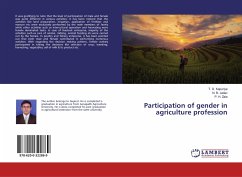
Is It Above Board?
Critical issues for boards of management in the welfare sector
Versandkostenfrei!
Versandfertig in 6-10 Tagen
62,99 €
inkl. MwSt.

PAYBACK Punkte
31 °P sammeln!
The western world's recent obsession with economic rationalism and corporatisation has had a detrimental effect on much of the welfare industry. The requirement that non-government or third sector welfare organisations comply with corporate managerialist practices has polarised much of the welfare industry. In particular small single issue welfare agencies have been particularly vulnerable to these new policies. By comparison the new government policies have been advantageous to the larger, often faith based organisations. This is a unique exploratory study that examines the issues for communi...
The western world's recent obsession with economic rationalism and corporatisation has had a detrimental effect on much of the welfare industry. The requirement that non-government or third sector welfare organisations comply with corporate managerialist practices has polarised much of the welfare industry. In particular small single issue welfare agencies have been particularly vulnerable to these new policies. By comparison the new government policies have been advantageous to the larger, often faith based organisations. This is a unique exploratory study that examines the issues for community welfare organisations from the boards of management perspective. The study, although is situated in rural South Australia, applies to both urban and rural based organisations. It researches the experiences of the group of board members that provide governance to the small, single issue, stand-alone organisations that provide services to the domestic violence, disability and homeless sectors of the community.












